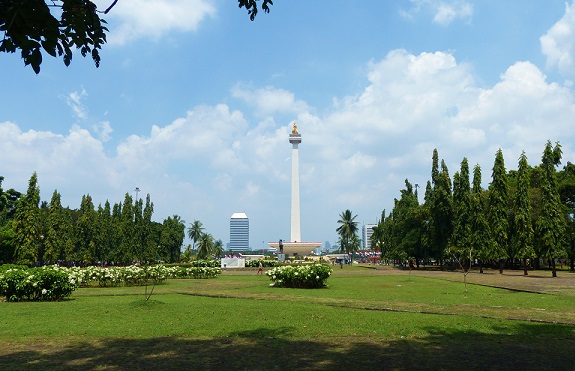Without Exploration Indonesia Turns into Net Energy Importer by 2019
Indonesia is facing the risk of becoming a net importer of energy by 2019 as the nation’s energy demand will reach 6.19 million barrels of oil equivalent per day (boepd) whereas the domestic energy supply will only reach 6.04 million boepd by that year. Provided that the economy of Indonesia remains expanding at a pace of +5 percent (year-on-year) while investments in energy exploration do not rise accordingly, Southeast Asia’s largest economy will become dependent on foreign energy supplies.

The Indonesian Petroleum Association (IPA) also expects that - although the usage of renewable energy sources grow (such as geothermal power and coalbed methane) - oil & gas demand will remain robust in Indonesia. By 2025, the IPA projects that Indonesia will require 7.7 million boepd, almost half of which (about 47 percent, or 3.6 million boepd) constitutes oil & gas demand. However, as output in Indonesia’s oil & gas sector has been in a state of decline (particularly oil output), the IPA forecasts an oil & gas deficit of 2.5 million boepd by 2025.
In recent history, exploration activities in Indonesia’s oil & gas sector have fallen year after year. Up to November 2014, drilling activities only reached 50 percent of the targeted 132 wells in 2014, and this may only increase to 60 percent of targeted drilling activities this year. With global oil prices having fallen sharply in recent weeks, several local companies are expected to postpone exploration activities.
The lack of exploration and other investments in Indonesia’s oil & gas sector are mainly due to weak government management, bureaucracy, an unclear regulatory framework and weak legal uncertainty.
All stakeholders in Indonesia’s oil & gas sector agree that the investment climate should be made more attractive in order to boost investments in exploration, most importantly legal certainty and fiscal policy. Fiscal incentives are important as drilling activities are significantly more expensive in Indonesia than in other countries (for example drilling costs are three times more expensive in Indonesia than in the Middle East). Meanwhile, various local taxes (such as land and building taxes) make exploration a costly business.
Kardaya Warnika, Chairman of House of Representatives Commission VII (which oversees energy, natural mineral resources, research and technology), suggests that the government should consider to adjust the current production sharing contract system that has been applied since the 1960s to make these contracts more attractive for investors.
Lastly, stakeholders request that permitting procedures will be made easier, bureaucracy curtailed, legal protection improved, incentives for enhanced oil recovery provided, and certainty about contracts that will expire soon given.

